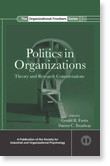Insights...News about faculty and their research
Six new faculty bring expertise to school

Tesluk
Complementing the school's team of prolific researchers and high-caliber instructors, six new faculty members joined the School of Management in fall 2011.
Paul Tesluk came on board as the Donald S. Carmichael Professor of Organizational Behavior, and was profiled in the fall issue of Buffalo Business. For more insights on Tesluk's research, see this issue's cover story.

Cichocki
Dianna Cichocki and Bradley Owens, both assistant professors, joined Tesluk in the school's Organization and Human Resources Department.
Cichocki has a master's from Oswego State University and a bachelor's from St. John Fisher College, and is teaching "Statistical Decisions in Management." She is an expert on incorporating technology into statistics and has been honored with academic excellence awards for her instruction.

Owens
Owens did post-doctoral work at the University of Michigan, has a doctorate from the University of Washington, and an MPA and bachelor's from Brigham Young University. His academic interests include leadership, team processes, race and gender issues and work/life balance. He is teaching "Organizational Behavior and Administration."

Metzger
Joining the Accounting and Law Department as assistant professors are Lorrie Metzger, CPA, Claudia Zhen Qi and Kenneth W. Zheng.
Metzger earned her MBA from the University at Buffalo and a bachelor's degree from the Rochester Institute of Technology. She brings more than 10 years of experience in public accounting and internal audit to her role and is teaching accounting information systems at the undergraduate level.

Qi
Qi has a doctorate from the University of Southern California, a master's from the London School of Economics and Political Science in the UK, and a bachelor's from Beijing University in China. Research interests include economic consequences of financial reporting and disclosure, risk disclosure and accounting conservatism. Financial accounting and financial statement analysis are her teaching interests.

Zheng
Zheng received both doctoral and master's degrees from the University of Texas at Dallas, and a bachelor's from Southwest University of Finance and Economics in China. His research interests are in corporate governance, executive compensation, accounting quality and disclosures, and accounting-based valuation models. Teaching interests include financial and managerial accounting and financial statement analysis.
Humility key to effective leadership
Humble leaders are more effective and better liked, according to a study forthcoming in the Academy of Management Journal.
"Leaders of all ranks view admitting mistakes, spotlighting follower strengths and modeling teachability as being at the core of humble leadership," says Bradley Owens, assistant professor of organization and human resources at the School of Management. "And they view these three behaviors as being powerful predictors of their own as well as the organization's growth."
Owens and co-author David Hekman, assistant professor of management at the Lubar School of Business, University of Wisconsin-Milwaukee, asked 16 CEOs, 20 mid-level leaders and 19 frontline leaders to describe in detail how humble leaders operate in the workplace and how a humble leader behaves differently than a non-humble leader.
Although the leaders were from vastly different organizations-military, manufacturing, health care, financial services, retailing and religious-they all agreed that the essence of leader humility involves modeling to followers how to grow.
"Growing and learning often involves failure and can be embarrassing," says Owens. "But leaders who can overcome their fears and broadcast their feelings as they work through the messy internal growth process will be viewed more favorably by their followers. They also will legitimize their followers' own growth journeys and will have higher-performing organizations."
The researchers found that such leaders model how to be effectively human rather than superhuman and legitimize "becoming" rather than "pretending."
But some humble leaders were more effective than others, according to the study. Humble leaders who were young, nonwhite or female were reported as having to constantly prove their competence to followers, making their humble behaviors both more expected and less valued. However, humble leaders who were experienced white males were reported as reaping large benefits from humbly admitting mistakes, praising followers and trying to learn.
In contrast, female leaders often feel they are expected to show more humility than their male counterparts, but then they have their competence called into question when they do show humility.
"Our results suggest that female leaders often experience a 'double bind,'" Owens says. "They are expected to be strong leaders and humble females at the same time."
Owens and Hekman offer straightforward advice to leaders. You can't fake humility. You either genuinely want to grow and develop, or you don't, and followers pick up on this.
Leaders who want to grow signal to followers that learning, growth, mistakes, uncertainty and false starts are normal and expected in the workplace, and this produces followers and entire organizations that constantly keep growing and improving.
Women are 'socially' networked, study shows
Bloggers and other social network users are more likely to share knowledge online where trust, strong social ties and reciprocity are present, according to a study forthcoming in the Journal of Management Information Systems.

Das
But the impact of each factor varies by gender, according to co-authors Sanjukta Das, assistant professor of management science and systems in the School of Management, H.R. Rao, SUNY Distinguished Service Professor in the School of Management, and Sangmi Chai, assistant professor at the College of Business in Sangmyung University in Seoul, Korea.
The researchers found that women bloggers tend to value reciprocity, or mutual exchange, and social ties much more than men, and they were more likely to share knowledge in an environment where those elements were present.
Das and her co-authors found that trust was an important factor as well. Knowledge sharing was greater when there was trust-trust in the quality of information and the credibility of those sharing it, and trust in the blogging community and the blog service providers. And while trust was important for both men and women, it was more important for women.

Rao
"When women bloggers interact with other bloggers to share knowledge, they are more concerned than men with maintaining relationships," Das says. "Men place more value on competition and control."
The study also revealed that online privacy concerns had a negative impact on knowledge sharing for both genders, but interestingly, much more so for men.
"It's not that women aren't concerned with privacy issues," Das says. "They actually have higher privacy concerns than men; but because women value social ties and reciprocity so much, they are willing to assume some risk when it comes to privacy."
The researchers conclude that IT managers and blog service providers can promote the use of blogs and other social media as knowledge-sharing tools by being more aware of gender differences.
"They can greatly enhance participation by catering to the needs and concerns of their target audiences," Das says.
New in Print

Profiles in Operations Research: Pioneers and Innovators
By Arjang A. Assad and Saul Gass
(Springer Press, July 2011)
Traces the history of operations research, or the science of decision making, from its military origins in the late 1930s to its current use in managerial planning and complex global operations techniques throughout business and industry. The book recounts the life stories of 43 individuals who made pioneering and seminal contributions to the growth and development of operations research.

Microsoft Access 2010 Tutorial and Lab Manual
By David Murray
(Kendall Hunt, June 2011)
A hands-on, tutorial-based textbook designed to teach students Microsoft Access 2010 and general database concepts.

Prominent Dutch American Entrepreneurs: Their Contributions to American Society, Culture and Economy
By C. Carl Pegels
(Information Age Publishing, June 2011)
Presents the stories of several successful Dutch American entrepreneurs, including Cornelius Vanderbilt, DeWitt Clinton, Cecil B. DeMille and the Koch brothers, focusing on their history in the United States, with the individuals featured representing enterprises that were well known during their respective eras.

Developing New Products and Services: Learning, Differentiation and Innovation
By G. Lawrence Sanders
(Business Expert Press, November 2011)
Focuses on the upfront activities and ideas for new product and service development, and outlines the struggle in many organizations between delivering feature-rich versions of products and services using extravagant engineering or delivering low-cost versions of products and services using frugal engineering. Entrepreneurship, technology and product life cycles, product and service versioning, product line optimization, business valuation and project management topics are also covered.

Politics in Organizations: Theory and Research Considerations
By Darren Treadway and Gerald R. Ferris
(Routledge Academic, January 2012)
Edited volume in the SIOP (Society for Industrial and Organizational Psychology) Frontiers series looking at the psychological factors behind politics and power in organizations. Noted contributors from schools of management, psychology, sociology and political science look at the theory, research, methodology and ethical issues related to organizational politics and climates.
Award-winning research proposes better method for estimating default risk
A new method of estimating the risk of default could help banks and insurance companies avoid problems with bad loans, according to award-winning research from a School of Management professor.

Wu
Chunchi Wu, M&T Professor of Banking and Finance in the School of Management, and his co-authors found that under the current method of assessing default risk for corporate bonds and credit default swap (CDS) insurance issued by banks and insurance companies, the risk was underestimated. Their research revealed that the risk premium to compensate for the default risk was underestimated as well.
A major drawback of the current method is that it doesn't consider the issue of liquidity of certain assets, or how easily they can be bought or sold. During times of financial crisis, their liquidity decreases considerably, and this can affect default rates.
"When the economy is weak, as it is now, it is critical to understand the default issue and not to underestimate risk," Wu says.
The researchers proposed an improved method that incorporates tax and liquidity factors in corporate bond pricing, while also disentangling their interactive effects.
Wu's research, conducted with Hai Lin, senior lecturer at the School of Business at New Zealand's University of Otago, and Sheen Liu, associate professor in the Department of Finance and Decision Sciences at Washington State University, appeared in The Journal of Fixed Income.
The authors were honored with the 2011 Peter L. Bernstein Award for extraordinary and compelling research. The award is named for the celebrated economic historian, consultant and founding editor of The Journal of Portfolio Management. The panel of industry experts who chose Wu's article for the award called it "a major contribution to the understanding of credit markets."
